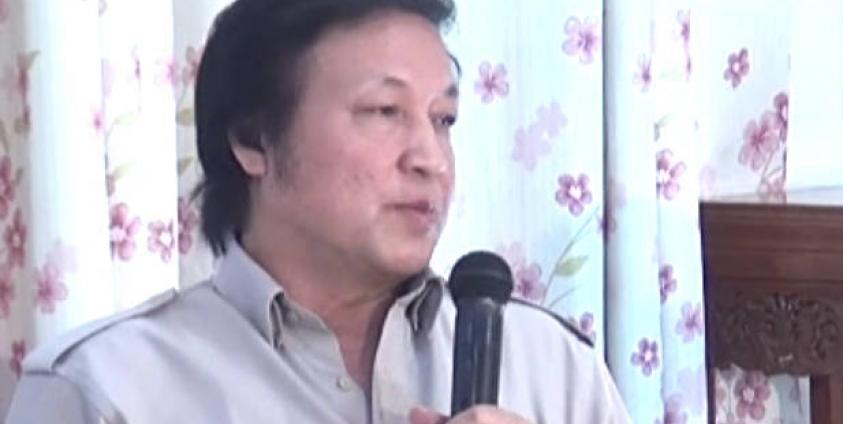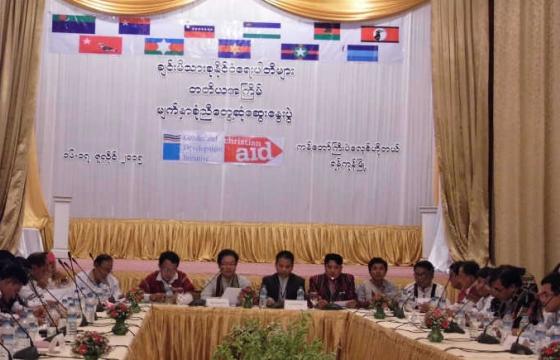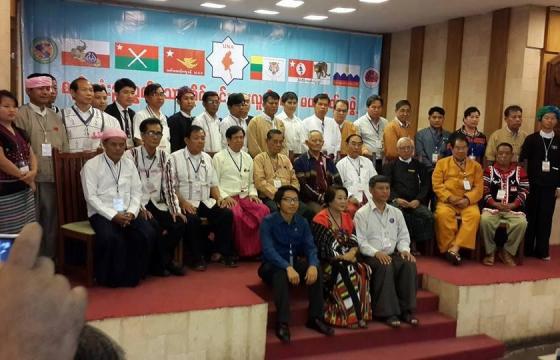Salai Kyaw Moe — The BNI Election Newsroom recently spoke with Pu No Than Kap, chairman for Chin Progressive Party (CPP). He is currently serving as Chin Affairs Minister in the Sagaing Region after the CPP won 12 seats during the 2010 election. Pu No Than Kap is running again to retain his seat.
There are 28 townships in Sagaing Region. In Lay Township there are about 72 Chin villages; in Tamu Township there are 36; and Homalin and Kani area there are 47.
Q: There has been a lot of criticism from the public about candidates failing to keep promises they gave during campaigning after being elected. What’s your view on this?
A: That’s because the public didn’t observe them carefully enough. They didn’t investigate whether or not the candidates actually did their work. The public still has many needs, and many don’t know what needs have been addressed. There are many areas they don’t anything about. What I mean is they don’t know what goes on outside of their own villages. It’s quite typical for candidates to say they will do this and do that during campaign rallies. But the CPP has been quite successful in Falam Township. We are trying our best; it’s difficult to achieve quick results as we still don’t have much authority.
Q: What are the needs for ethnic Chin people residing in Sagaing Region?
A: Roads, bridges and school development. These are basic needs, not only the Chin people, but for the entire country. This is an issue that must be handled by the government no matter who takes office. We believed we have achieved some success in the past four years, but it’s not satisfactory. What’s most important is that people don’t know what they should know. They don’t know their basic rights; many Chin people aren’t receiving any benefits in Sagaing Region. They have been unfairly sent to prison, or forced to pay money. They have to pay between 10,000 and 30,000 kyats to make a national registration card that should only costs only 6 kyats. They are oppressed, so what we really need is more knowledge (about their rights).
Q: Is it true that fewer candidates from the CPP are running in this 2015 Election, compared to the 2010 Election?
A: There has been an agreement between the Chin political parties. S, as part of this agreement we reduced the number of candidates. There’s only one Chin party that didn’t follow this agreement and this party is claiming to the biggest party. It’s probably because they don’t want to avoid the areas stated in our agreement.
We respect the Chin party agreement. Also, we had the most number of candidates back in 2010. But this doesn’t work because some of them moved to other parties as they have no loyalty. Having the most number of candidates isn’t that important which is why we reduced it. Also, we gave priority to female candidates this time. There weren’t any female candidates back in 2010. Now, there are five female candidates.
Q: There are many Chin parties, so what makes the CPP different from other parties? Can you explain why the public should vote for the CPP?
A: All parties share the same views on democracy and federal issues. The difference between the CPP and other parties is our efforts to fix not only the basic needs, but also human resources. We are trying to make it obvious that Chin is a major ethnic group and should obtain equal rights as with other ethnic groups.
Q: What are the main difficulties you face during campaigning?
A: Our main difficulty for rallies is that the public still lacks basic knowledge (about the political process). For example, they believed candidates can only work for the public if they are from major parties. Actually, this is wrong and it’s quite the opposite. Sometimes, I’m surprised at some of the candidates running for Chin Affairs Minister. I wonder if they even know who they are running for.
I believe the public is weak both in querying candidates and understanding what they mean when they talk about change. How will the changes in Myanmar affect the Chin people? What are the benefits? They don’t know how to think of such questions; our people get confused. Chin parties are the ones that have been working from the ground up for the development of our people, not the non-Chin parties. The public doesn’t understand this.
Q: Which areas are expected to be strong areas for the CPP?
A: We expect Falam and Palatwa as our strong areas, just as it was back in 2010. I can’t say how powerful they will be because it’s more competitive than it was in 2010.
Q: What do you want to say to the public?
A: What I want to tell the public is addressing their basic needs is not enough on its own. No matter what party takes office, it’s their duty to solve this. It’s important for us to know what our rights are. It’s because of our disadvantages that we don’t understand this. The public needs to read more and ask more questions. What I’ve noticed most during our public rallies is the public is lacking basic knowledge. People will get respect if they develop their knowledge base and this is something that I would urge everyone to do.






